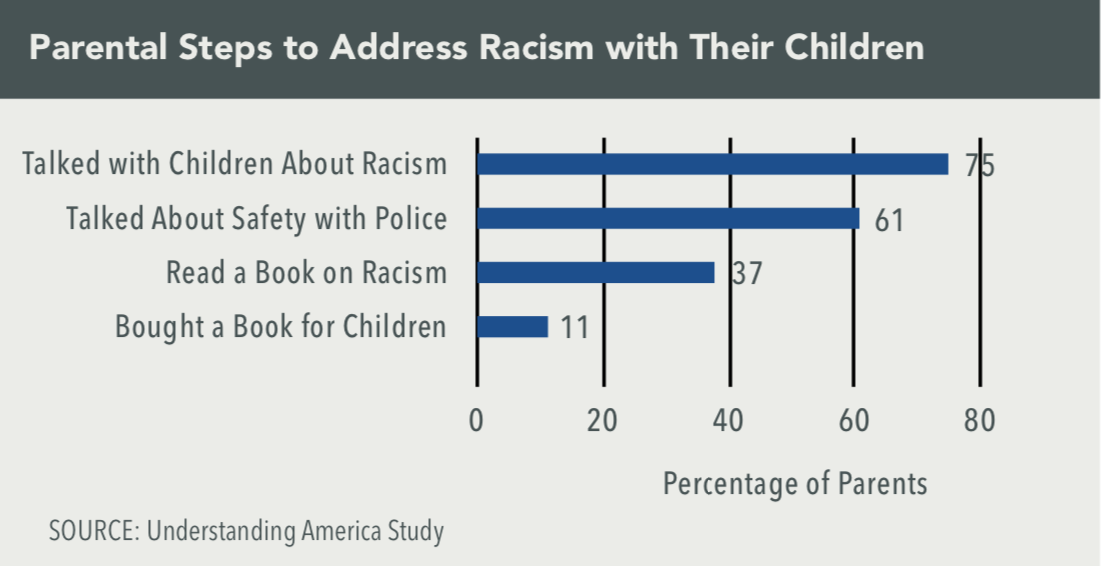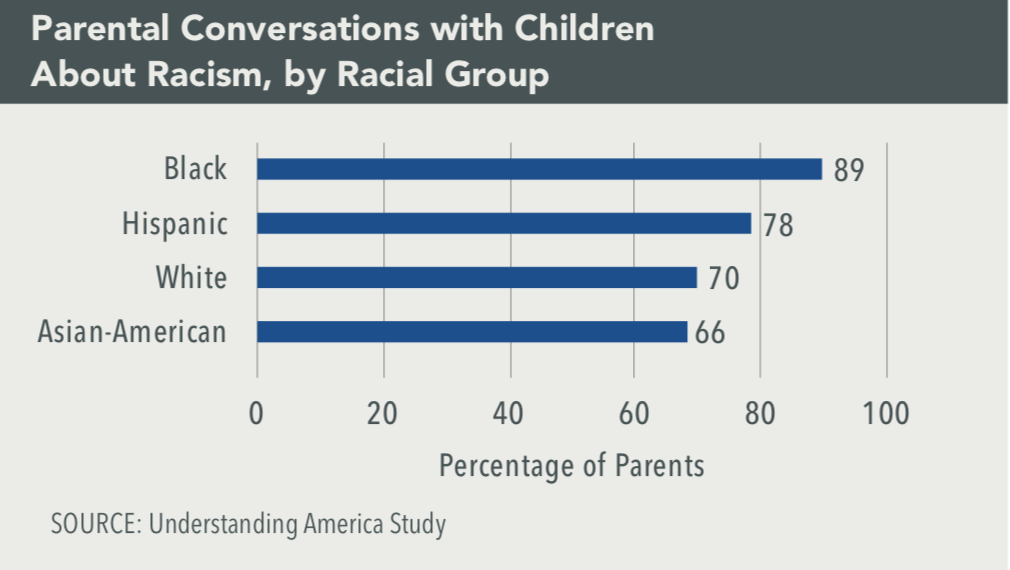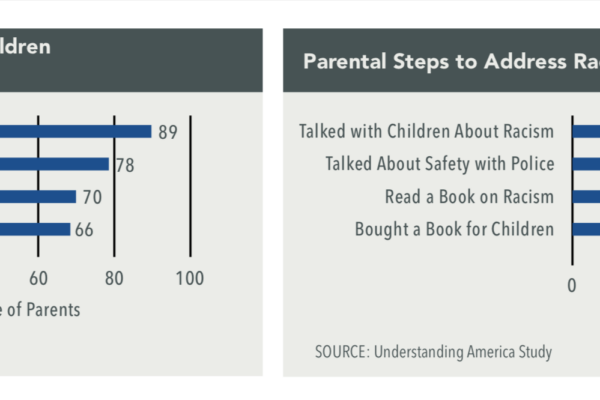The past year has brought a reckoning on racism in the United States, prompted by the killing of George Floydthe resulting Black Lives Matter protests, and the disproportionate COVID impacts in communities of color.
But has this increased awareness led to an increased effort, especially among White people, to engage in difficult conversations about race?
Our data suggests that overall three-quarters of parents reported talking to their children about racism since May 2020, but there are meaningful gaps across groups. Black parents are talking to their children more than White parents, Democrats more than Republicans, urban parents more than rural parents, and mothers more than fathers.
We collected data through the Understanding America Study (UAS), a nationally representative survey administered to the same households over time by the USC Dornsife Center for Economic and Social Research. The UAS includes approximately 1,400 households with at least one child in preK through 12th grade in the 2019-20 school year. We collected survey data addressing households’ conversations and activities related to race and racism as part of our June 24-July 22 administration. The work presented here was done in collaboration with Morgan Polikoff, Amie Rapaport, and Marshall Garland.
We found overall among the parents surveyed, 75 percent reported that since May 2020 they had spoken with their children about race, and 61 percent had spoken about how to behave around the police to stay safe.
We also asked about purchasing books, since anti-racist books have jumped in sales since the protests. White Fragility—a book geared specifically to helping White people think about their contribution to racism—has topped best-seller lists. We found books received less attention, with 37 percent of parents reporting they had purchased one for themselves to read, and 11 percent reporting purchasing a book for their children.
Importantly, we found stark differences across groups by parents’ racial background, locality, household income, gender, and political party.
In response to a question asking whether parents had discussed racism with their children since May 2020, 85 percent of Democrats reported conversations, compared to 64 percent of Republicans. About 79 percent of mothers had the talk, compared to 69 percent of fathers. And 81 percent of parents in urban areas discussed racism, compared to 69 percent in rural communities.
 Not surprisingly, Black families were also the most likely to have discussed staying safe around police with their children since May 2020, with 84 percent of them having a discussion compared to 67 percent for Latino, 54 percent for White, and 48 percent for Asian.
Not surprisingly, Black families were also the most likely to have discussed staying safe around police with their children since May 2020, with 84 percent of them having a discussion compared to 67 percent for Latino, 54 percent for White, and 48 percent for Asian.
High income families were less likely to talk with their children about racism, with 39 percent compared to 60 percent for middle-income families and 64 percent for the lowest income.
The diversity of engagement in and support for the Black Lives Matter movement has sparked optimism that a broader proportion of the population will support anti-racism. While segments of the population are called to action more than ever before, our data suggests that at least inside people’s households, the anti-racism parenting work is concentrated in some households more than others.
Ultimately, if we do not see increased effort among all parents to address systematic racism through conversations with children, it is unlikely that we will see the broad-based progress our society needs.



